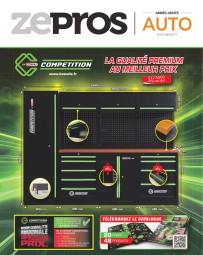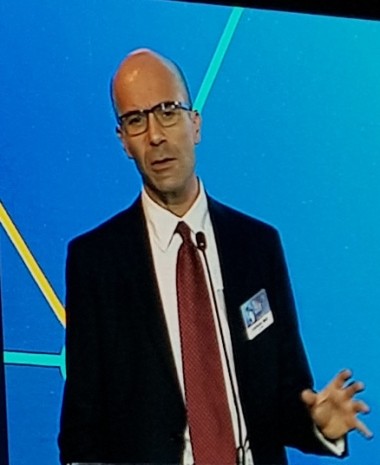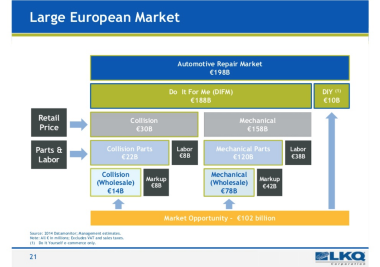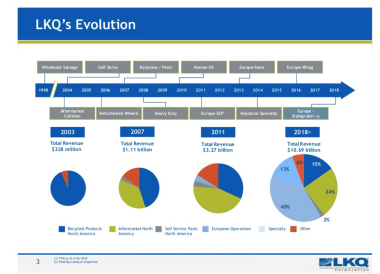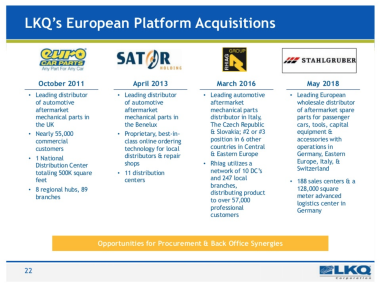Big work on the dataSynergies in services to garages are also underway. "We are working on developing the content of each programme for garages." On the other hand, there is no plan to standardize garage networks, because the LKQ Europe teams have in mind that, even if Europe is a market in its own right, it is essential to respect the cultural differences of each country. Fleet management, from the smallest to the largest, online business drawing on the experience of ECP and its powerful site in Great Britain (which has not yet succeeded in becoming a significant pan-European tool), call centres or technical support. Teams are working on all fronts to create their own system to meet the needs of the market but also technological challenges. "We are investing in R&D to work on data, its reprocessing and the information it delivers." A team has been set up in Great Britain to develop "the best electronic catalogue in Europe that should become the master reference with a data platform for maintenance". Similarly, six LKQ employees are working with UK universities to develop a solution for vehicle data processing. "Globalization helps lower costs. Diversification helps to support growth, to reduce the risks inherent in the weaknesses in some businesses by relying on other more resilient ones at a given moment." The European team must present solid financial parameters. Because if the obvious dynamism of the European performance of LKQ is clear, things are different when looking at profit levels. The nine-month Ebitda is struggling to pass 8% in Europe versus nearly 13% in the US. In fact, our European markets are expensive to develop, and LKQ emphasizes the importance of leveraging synergies "and the ability to integrate and manage the risks of companies acquired". In this context, European integration is a necessity for LKQ in its search for growth and margins on our continent. “There is still a lot to do in Europe. The road ahead is still long, but it is clear to us.”Caroline Ridet
